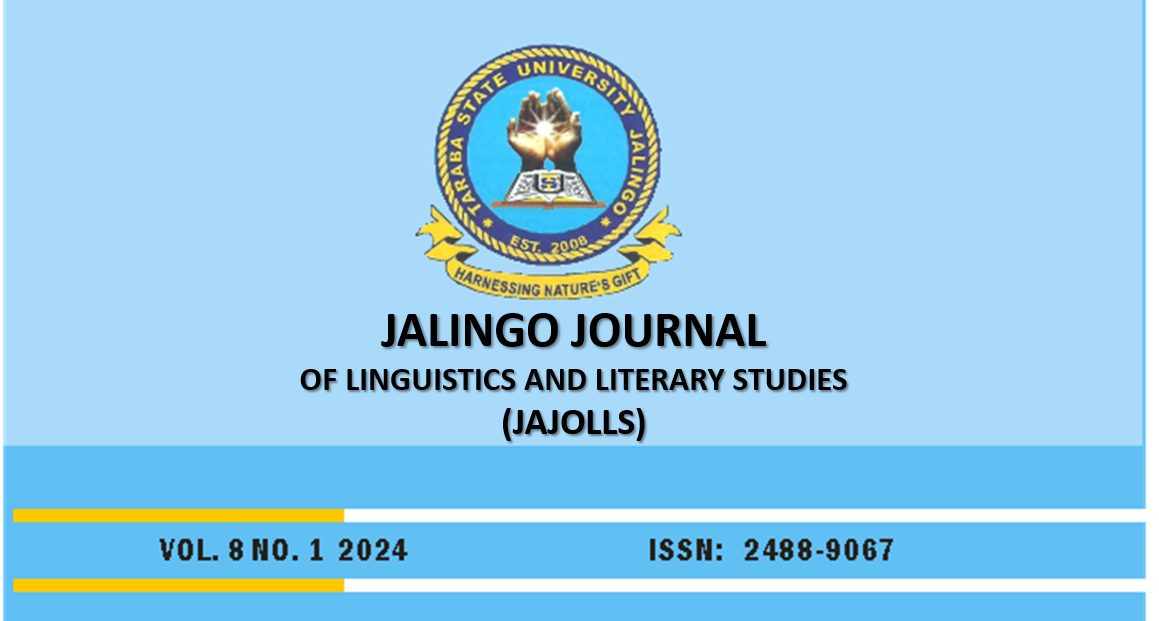Lexico-Semantic Features of Nigerian English: A Study of Zaynab Alkali’s “The Stillborn”
Keywords:
Lexical, Semantic, Phrase and Senences, The StillbornAbstract
The paper attempts an analysis of lexico-semantic features of Nigerian English in Zainab Alkali’s The Stillborn in order to show how lexical items such as words, phrases and sentences are used at the phonological, lexical, semantic, and grammatical (syntactic) and discourse levels in the text. It reviews studies on lexico-semantic features, carried out by some scholars. It adopts J.R. Firth’s theory
of contextual meaning or context of situation theory as a basis for the analysis of the data. The data which are the lexico-semantic features in the text are extracted from chapters one, three, five, seven and nine of the text. They are presented in statistical tables indicating the meanings and frequency of occurrences of the identified Nigerian English (NE) lexical items. They are presented in tables and simultaneously analysed using contextual theory of meaning where the semantic features of the lexical items are analysed. From the analysis of the data, it is discovered that in context or structure, there are lexical items which express Nigerian meaning in “The Stillborn”. It is also discovered that Nigerian words or lexical items are coined into English to replace words which are absent in the English language; fixed standard expressions are modified to suit Nigerian concepts; British English expressions are used with extended meaning in Nigeria and standard British English is used in cultural expression in Nigeria. It concludes that a variety of English which is peculiarly Nigerian now exists among the varieties of English worldwide. It also concludes that of all the NE lexical items used in the text, direct translation from MT categories are more in number or are extensively used than the other categories because they recorded the highest percentage.

